Domes became technically significant with the introduction of the large-scale masonry hemispheres by the ancient Romans. The Sassanid Empire initiated the construction of the first large-scale domes in Persia while they regained popularity in Europe during the Renaissance and Baroque periods resulting in some of the most famous domes in the world.
14. United States Capitol

Situated atop Capitol Hill in Washington DC, the Capitol is the meeting place of the United States Congress. The first session of Congress was held at the Capitol on November 17, 1800, although the building was still incomplete. The cast iron dome of the Capitol is not the first dome to sit above the building, but the second. The initial dome was replaced after the Capitol was expanded in the 1850s to accommodate the growing number of legislators from newly admitted states. The expansion more than doubled the length of the Capitol, but also dwarfed the original, timber-framed dome.
13. St. Paul's Cathedral
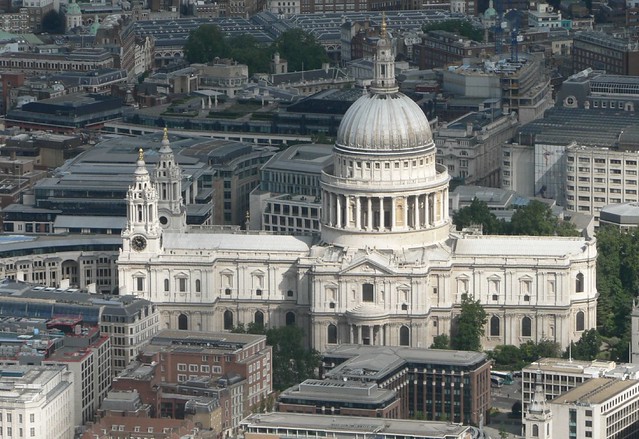
Built in the 17th century, St. Paul’s Cathedral is one of London’s most famous and most recognizable sights. The Cathedral was heroically saved by firefighters when it was bombed during the Second World War. Its impressive dome was inspired by St Peter’s Basilica in Rome and rises 108 meters (365 ft) to the cross at its summit. The tall outer dome is actually non-structural but impressive to view, while two lower inner domes provides a balanced interior.
12. Great Stupa at Sanchi
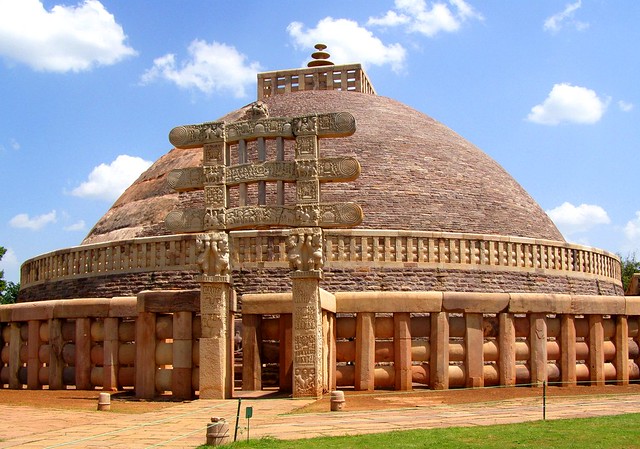
The Great Stupa at Sanchi is the oldest stone structure in India and was originally commissioned by emperor Ashoka the Great in the 3rd century BC. Its core was a simple brick dome, supposedly built over the relics of the Buddha. The stupa was expanded a century later with stone slabs to almost twice its original size. The dome was flattened near the top and crowned by three superimposed parasols within a square railing.
11. Eden Project

Located in Cornwall, the Eden Project is the world’s largest greenhouse. The project took 2½ years to construct and opened its doors to the public in 2001. The Eden Project is dominated by two huge enclosures consisting of adjoining domes that house plant species from around the world. The first enclosure emulates a tropical environment, and the second a Mediterranean environment. The domes consist of hundreds of hexagonal and pentagonal, inflated, plastic cells supported by steel frames.
10. Lotfollah Mosque
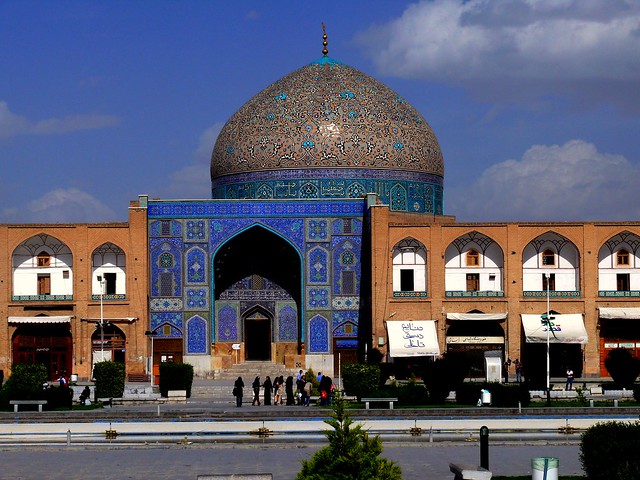
Built in the early 16th century, the Lotfollah Mosque (or Sheikh Lotf Allah Mosque) in Isfahan, Iran, is one of the architectural masterpieces of Persian architecture. The mosque was intended as a private mosque of the royal court, unlike the Shah Mosque (see below), which was meant for the public. For this reason, the mosque does not have any minarets and is of a smaller size. Throughout history, the Lotfollah Mosque has often been referred to as the Domed Mosque because of its beautiful flattened dome.
9. Reichstag
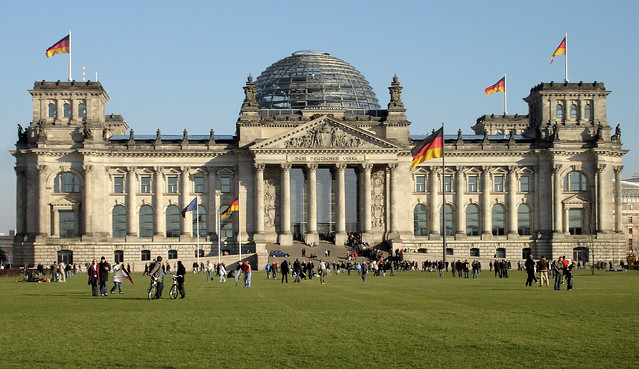
The Reichstag was originally completed in 1894 to meet the need of the newly-unified German Empire for a larger parliamentary building. Its architect, Paul Wallot, intended the Reichstag to resemble a Renaissance palace. In 1933 the building was severely damaged in a fire set by a Dutch communist , an event infamously exploited by the Nazis. After the reunification of Germany it became the meeting place of the modern German parliament, the Bundestag. The Reichstag has undergone considerable restoration and alteration, not least the addition of a spectacular glass dome designed by the British architect Norman Foster. The dome has a spectacular 360-degree view of the surrounding Berlin cityscape.
8. Santa Maria del Fiore
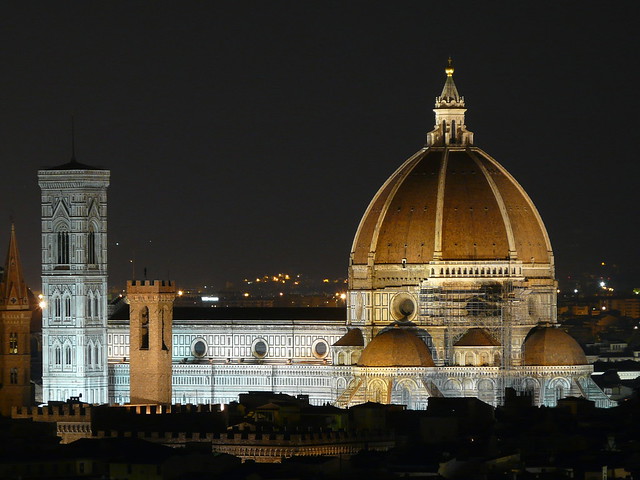
Begun in 1296 in the Gothic style and completed in 1436, The Basilica di Santa Maria del Fiore is Florence’s beautiful cathedral and symbol of the city. The basilica is one of Italy’s largest churches, and until the modern era, the famous dome was the largest in the world. It remains the largest brick dome ever constructed.
7. Shah Mosque
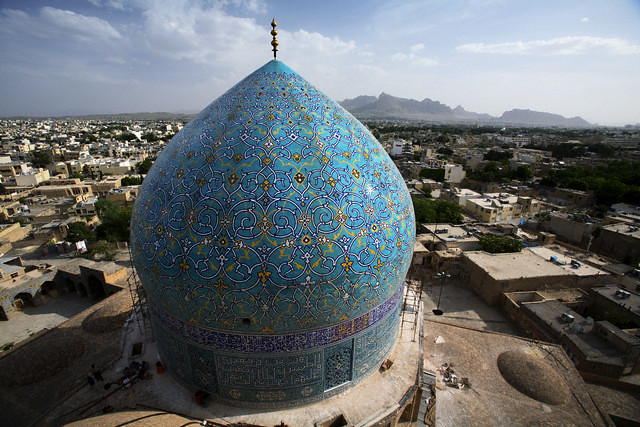
The Shah Mosque (or Imam Mosque)in Isfahan, Iran is regarded as one of the masterpieces of Persian Architecture. Its construction began in 1611, and its splendor is mainly due to the beauty of its seven color mosaic tiles and calligraphic inscriptions. The Safavids dynasty initiated a renaissance in Persian dome building and the dome of the Shah Mosque would become the tallest in Isfahan reaching a height of 53 meters (74 ft). The distinct feature of this and other Persian domes was the colorful tiles, with which they covered the exterior of their domes, as they would on the interior.
6. Dome of the Rock
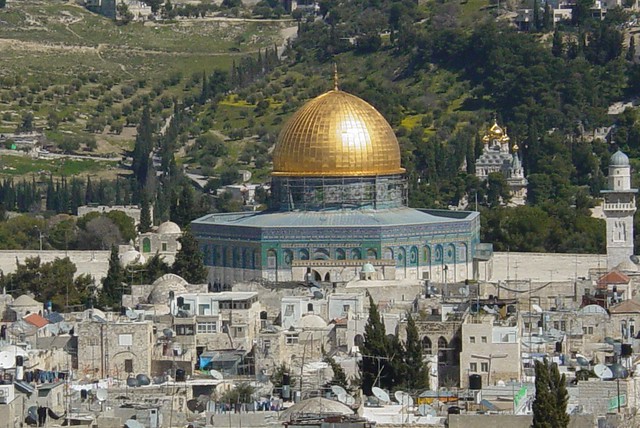
Initially completed in 691 AD, the Dome of the Rock is one of the first and most familiar achievements of Islamic architecture. Located on the Temple Mount it stands on one of the most contested religious sites in the world. Despite common conceptions, the Dome of the Rock is not a mosque, but a shrine which protects beneath its high ceiling, a sacred rock. The Dome is probably the most spectacular building in the Old City, topped with a dazzling golden dome visible from afar, the interior layered with glittering ceramics, mosaics and Arabic calligraphy.
5. Pantheon
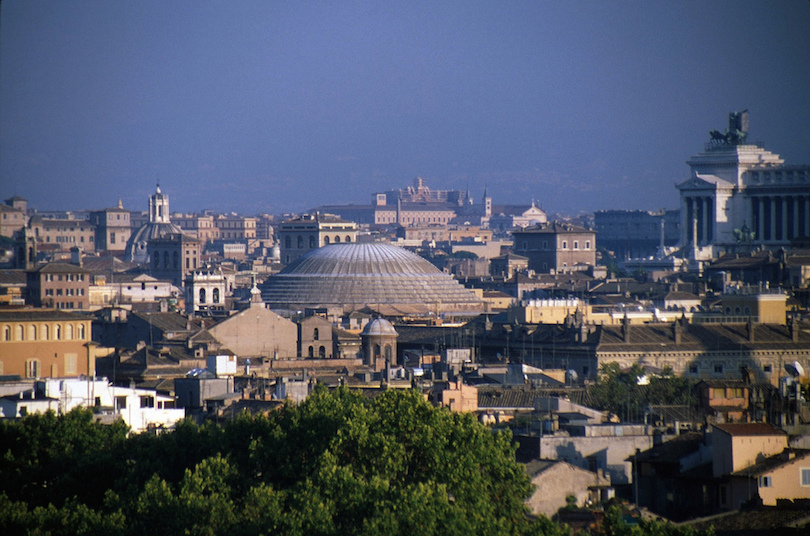
The Pantheon in Rome was built in 126 AD as a temple for all the Roman gods and served as a Roman Catholic Church since the 7th century. The temple is topped with a concrete dome with a central opening: the oculus. Almost two thousand years after it was built, the Pantheon’s famous dome is still the largest unreinforced concrete dome in the world.
4. St. Peter's Basilica
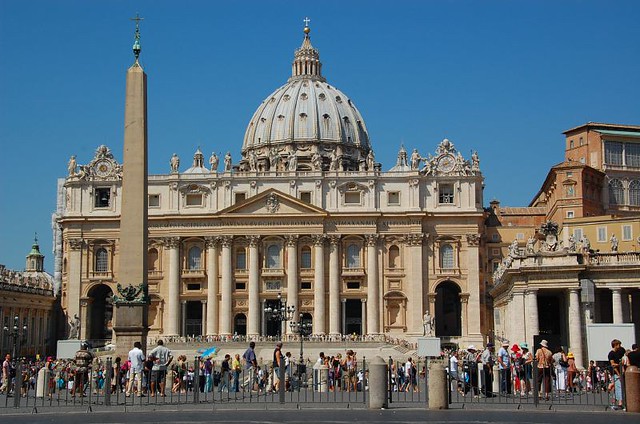
Construction on the St. Peter Basilica in Rome began in 1506 and was completed in 1615. It was to the famous domes of the Pantheon and Florence Duomo that the architects of St. Peter’s looked for solutions as to how to go about building what was conceived, from the outset, as the greatest dome of Christendom. In 1547 Michelangelo redesigned the dome, taking into account all that had gone before. The dome of St. Peter’s rises to a total height of 136.57 meters (448.1 ft) from the floor of the basilica to the top of the external cross. It is the tallest dome in the world.
3. Hagia Sophia

Dating from the sixth century, the Hagia Sophia in Istanbul was originally the cathedral of Constantinople but became a mosque in the 15th century when The Ottomans conquered the city. The Hagia Sophia is now a museum. A masterwork of Roman engineering, the massive dome (31 meters or 102 feet in diameter) covers what was for over 1000 years the largest enclosed space in the world.
2. Taj Mahal
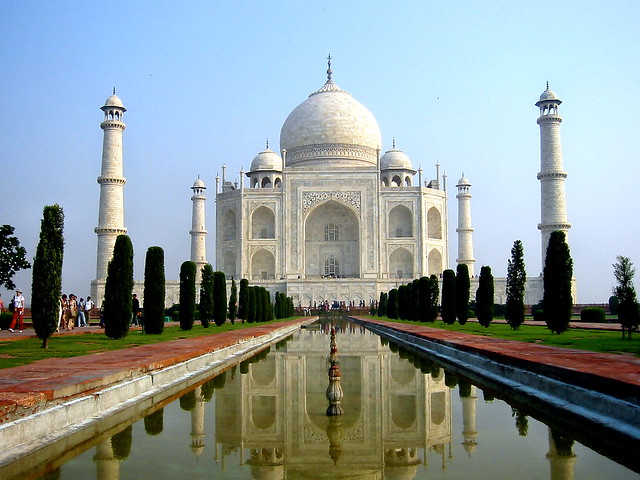
The Taj Mahal is an immense mausoleum of white marble, built between 1632 and 1653 by order of the Mughal emperor Shah Jahan in memory of his favorite wife. The most spectacular feature of the Taj Mahal is the marble dome that surmounts the tomb. Its height of around 35 meters (115 ft) is about the same as the length of the base, and is accentuated as it sits on a cylindrical drum. The top of the famous dome is decorated with a lotus design.
1. Saint Basil's Cathedral
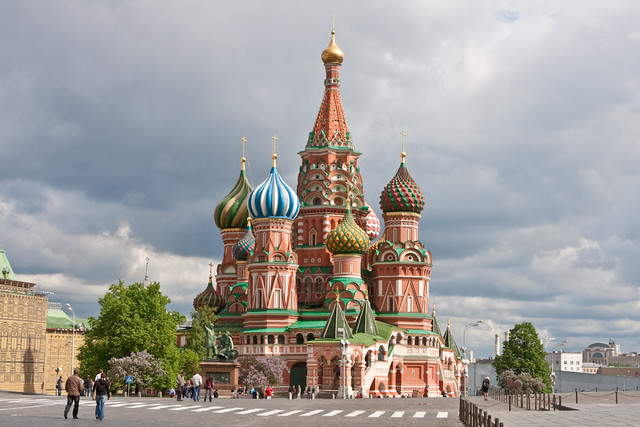
The famously colorful St. Basil’s Cathedral in Moscow was built between 1534 and 1561 by Ivan the Terrible to commemorate the capture of the Tatar strongholds of Kazan and Astrakhan. The building’s design has no analogues in Russian architecture and nothing similar can be found in centuries of Byzantine tradition before the cathedrals construction. Saint Basil’s Cathedral contains 9 onion domes, a type of dome that became the predominant form for church domes in Russia.
Source
